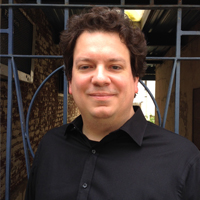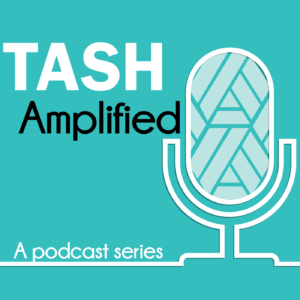Podcast: Play in new window | Download (Duration: 49:52 — 68.5MB)
Subscribe: RSS
Season 4, Episode 1 — 8 August 2019
About this episode
We talk with Professors Jennifer Kurth and Andrea Ruppar, two of the six authors of the article, “Considerations in Placement Decisions for Students With Extensive Support Needs: An Analysis of LRE Statements” in the May 2019 issue of Research and Practice for Persons with Severe Disabilities (vol. 44, no. 1). They have collected a library of Individualized Education Plans (IEPs) and examined them to see how schools and educators decide to remove students from the general classroom, when supplementary services are offered to keep them in the classroom, and when they are withheld.
About the presenters
 Jennifer Kurth is an Associate Professor of Special Education at the University of Kansas. Her academic interests include methods implementing inclusive education, including methods of embedding critical instruction within the context and routines of general education as well as methods of providing appropriate supports and services for individual learners. Dr. Kurth’s research also examines how teachers, students, and family’s interactions support and constrain learning and socialization in general education classrooms. She also studies how teacher candidates develop their dispositions and skills in inclusive practices. Dr. Kurth’s research interests in inclusive education also include examining outcomes of inclusion in terms of skill development and quality of life indicators for students with disabilities.
Jennifer Kurth is an Associate Professor of Special Education at the University of Kansas. Her academic interests include methods implementing inclusive education, including methods of embedding critical instruction within the context and routines of general education as well as methods of providing appropriate supports and services for individual learners. Dr. Kurth’s research also examines how teachers, students, and family’s interactions support and constrain learning and socialization in general education classrooms. She also studies how teacher candidates develop their dispositions and skills in inclusive practices. Dr. Kurth’s research interests in inclusive education also include examining outcomes of inclusion in terms of skill development and quality of life indicators for students with disabilities.
 Andrea Ruppar is a Professor in the Department of Rehabilitation Psychology and Special Education at the University of Wisconsin — Madison. Dr. Ruppar’s scholarship focuses on building the capacity of schools and teachers to provide meaningful, evidence-based, inclusive education for students with the most significant disabilities – including multiple disabilities, intellectual disability, and autism. She earned her Ph. D. from the University of Illinois in 2011 and completed a post-doctoral traineeship at the University of Florida. In her recent work, she has examined: 1) adolescents’ access to literacy and communication; 2) the role of teachers in promoting access and involvement in the general curriculum within inclusive contexts; and 3) the development and evaluation of expertise among teachers of students with the most significant disabilities. A former K-12 special educator, Dr. Ruppar is particularly interested in the influence of the social context of teachers’ workplaces on decision-making. She is the past recipient of the Council for Exceptional Children Student Research Award in the area of qualitative methodology, the American Educational Research Association Special Education SIG Student Research Award, and the Council for Exceptional Children Teacher Education Division Early Career Publication Award.
Andrea Ruppar is a Professor in the Department of Rehabilitation Psychology and Special Education at the University of Wisconsin — Madison. Dr. Ruppar’s scholarship focuses on building the capacity of schools and teachers to provide meaningful, evidence-based, inclusive education for students with the most significant disabilities – including multiple disabilities, intellectual disability, and autism. She earned her Ph. D. from the University of Illinois in 2011 and completed a post-doctoral traineeship at the University of Florida. In her recent work, she has examined: 1) adolescents’ access to literacy and communication; 2) the role of teachers in promoting access and involvement in the general curriculum within inclusive contexts; and 3) the development and evaluation of expertise among teachers of students with the most significant disabilities. A former K-12 special educator, Dr. Ruppar is particularly interested in the influence of the social context of teachers’ workplaces on decision-making. She is the past recipient of the Council for Exceptional Children Student Research Award in the area of qualitative methodology, the American Educational Research Association Special Education SIG Student Research Award, and the Council for Exceptional Children Teacher Education Division Early Career Publication Award.
 Donald Taylor is responsible for membership and chapters at TASH and is the producer of Amplified.
Donald Taylor is responsible for membership and chapters at TASH and is the producer of Amplified.
Transcript
Complete transcript forthcoming
This interview was originally recorded on 9 May 2019.
This transcript has been lightly edited for clarity.
Do you have an idea for an episode? We would like to hear from you! Fill out our suggestion form and let us know.

This work is licensed under a Creative Commons Attribution 4.0 International License. You are free to copy, redistribute or adapt it for any purpose, commercial or non-commercial, provided you adhere to the terms, including that you attribute the original source.

